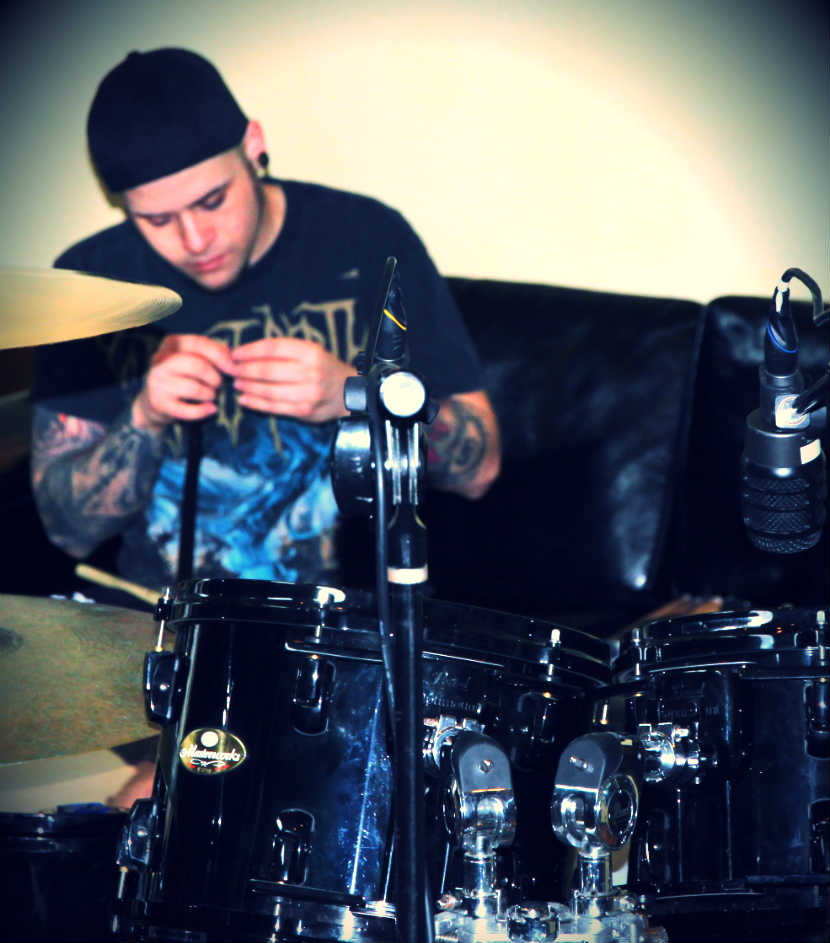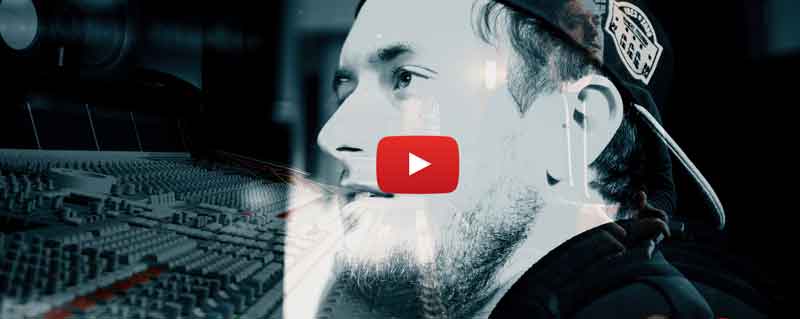Recording Arts Program
The Recording Arts Program lasts approximately 16 months. You will need a minimum of 20 hours per week (Aproximately 4 hours of one-on-one course instruction, 2 hours of class events, and 15 hours of project or studio lab time).
The Recording Arts Program is designed to take you directly on a music production career path. Working in the music industry is very reputation oriented. It is often difficult for beginning audio engineers and music producers, even if they are accomplished, to gain a foothold. If they aren't working then they aren't gaining a reputation and if they don't have a reputation as an audio engineer or music producer then they aren't getting work. The design of this program is a direct answer to that problem.
During the program you will be seeking out what will be potential clients, bringing them into the studio, and doing single full production songs with them. In the Advanced Term you will do as many as 10 music production projects like this (10 single songs with the intent to create a client). Through this process you will be learning how to find and interact with potential clients, how to build client relationships, and a refinement of the music production skills you started in the Beginning Term.
In tandem to your music production projects you will be attending a weekly music business, beat composition, marketing and design, and Pro Tools lesson. The business and marketing lessons will cover everything from designing your own business card and website to understanding QuickBooks, music law, and publishing. The beat composition lessons combine traditional songwriting techniques with the use of the most current beat production software.
There are very few students that make it all the way through the Recording Arts Program that don't create at least a client or two. So, if you continue the path we start you on during the program, you should be on a path to building a client base in the coming years.
Recording Arts - Term 1 & 2 (Academic Year I) - Click the tabs below to see some of the classes that make up the four course subjects.
Beginning Recording Techniques
Beginning Recording Techniques (BRT-101) is a 2 hour a week, one-on-one class. It introduces fundamentals of recording techniques and equipment used within a recording studio. Concepts such as defining what audio is, signal flow, patch bays, signal processors, microphones, consoles and other studio basics are taught. Here is a breakdown some of the lessons:
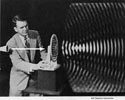
Sound
Understanding the anatomy of sound

Microphone Design
Understanding how acoustic sound waves are converted into analog electrical signal
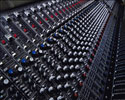
Session flow, Signal flow
Understanding how signal flows around the "console"

Patch Bay, More Signal Flow
Connecting and re-routing signal all across the studio
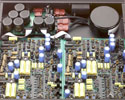
Amplifiers
Understanding how analog signal is manipulated
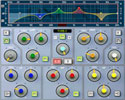
Equalization
Everything there is to know about the technical aspects of tonal shaping
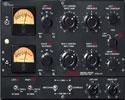
Dynamics
Understanding the tools we use to manipulate the range between loud and quiet
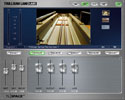
Time Based Effects
Understanding the anatomy and the controls of reverb, delay, flanging, chorusing and others
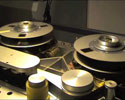
Analog Tape
Understanding the science behind the tonal characteristics of an analog signal path
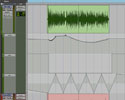
Automation
Learning how to synchronize automate every single parameter in Pro Tools
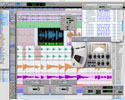
Digital Technology
The specifics of the science around how digital recording and editing work
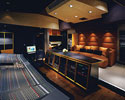
Midi and Studio Design
Understanding MIDI, and the science behind proper studio acoustics
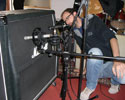
Microphone Techniques
Understanding special mic techniques, placement and terminology
Beginning Pro Tools and Productions
Beginning Pro Tools (BPT-101) is a 1 hour a week, one-on-one class. It introduces the student to Avid's (Digidesign's) Pro Tools software, its interface and menu structure. Topics covered are selection and navigation, editing techniques, mixing, mastering and exporting finished product. All classroom discussion is reinforced with required lab work. Here is a breakdown of some of the lessons:

Editing Concepts
Understanding the anatomy of digital audio and non-destructive editing
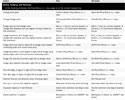
Tools and Key Commands
The first round of tools and key commands to know and use in an editing assignment
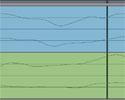
Sample Accurate Editing
The second round of tools and key commands to use in a sample accurate assignment
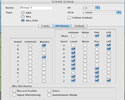
Groups and Playlists
Understanding how groups and playlists work and interact with each other during editing
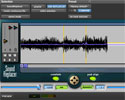
Sound Replacer
A breakdown of all the controls, functionality, and concepts of Sound Replacer
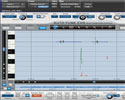
Auto-Tune
A breakdown of all the controls, functionality, and concepts of Auto-Tune
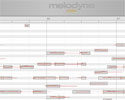
Melodyne
A breakdown of all the controls, functionality, and concepts of Melodyne
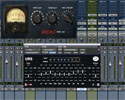
Routing for Mixing
Understanding stereo bussing, insert points, and send and returns

Compressors
Understanding the multiple tonal characteristics and the dynamic control created with the compressor

EQ's
Understanding the proper use of tonal shaping

Mixing Concepts
Understanding how dynamics, tonal shape, and stereo imaging work to create a 3D Mix
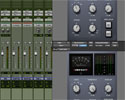
Routing for Mastering
Understanding the structure and signal flow of a mastering session
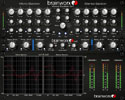
Mastering Concepts
Understanding multi-band compression, M-S, Inflating, Limiting, and Dithering
Beginning Beat Production and Music Theory
Beginning Beat Production and Music Theory (BMT-101) is a 1 hour a week, one-on-one class. It introduces the fundamentals of music theory in a production context. Topics discussed are major and minor key scales, intervals, basic elements of rhythm, triads and seventh chords, diatonic chords in major and minor keys, ear training, and key recognition. Here is a breakdown of some of the lessons:
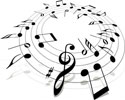
Major Scales

Minor Scales

Intervals

Rhythm

Triads and 7 Chords

Inversions of Chords

Diatonic Chords

Ear Training

Key Recognition

Music Analysis
Beginning Projects and Events
Beginning Projects (BPE-101) is 2 hours of a weekly event combined with 14 hours of lab. It starts with a simple singer-songwriter session and then quickly graduates to full production recording. The student owns every step of the process. For each project the student will: contact artist, schedule studio time, record, overdub, edit, mix and master the material. We will walk you through every step of the way with weekly seminars and one-on-one tracking, editing, mixing, and mastering meetings. Here is a breakdown of first the seminars and then the projects:
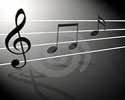
Song Creation
The production techniques around song writing

Tracking
Everything you would need to know when you show up to the studio to record an artist

Editing
Everything you would need to know when you show up to the studio to edit a song you have recorded

Mixing
Everything you would need to know when you show up to the studio to mix a song you have recorded

Mastering
Everything you would need to know when you show up to the studio to master a CD

Client Relationships
Everything you would need to know to initiate and maintain healthy client relationships

Project Tracking
The freely booked studio time and instructor support to record as many as 6 projects

Project Editing
The freely booked studio time and instructor support to edit all projects

Project Overdubbing
The freely booked studio time and instructor support to overdub tracks for all projects

Project Mixing
The freely booked studio time and instructor support to mix all projects

Project Mastering
The freely booked studio time and instructor support to master all projects
Recording Arts - Term 3 & 4 (Academic Year II) - Click the tabs below to see some of the classes that make up the five course subjects.
Music Business Development
Music Business Development (MBD-201) is a 1 hour a week, one-on-one class. It is fundamentally a small business development course that is specifically designed with the entertainment and music entrepreneur in mind. We are going to step through the process of starting an entire small music business for each student. Here is a breakdown some of the lessons:

Business Name
Designing the best name on which to build your music business startup

Business Modeling
Doing the math around how your business will be structured

Business Practices
The do's and don'ts of good business with clients

Accounting
Basic accounting concepts, how to get around in Quick Books, and how to make a professional invoice
Digital Distribution
All of the different ways music is distributed today, and where it is headed tomorrow
Royalty/ Digital Release
Understanding the many ways songwriters make money from the use of there songs

Music Law
Understanding how law interacts with the music industry, and some of the basic terminology embedded in standard contracts
Internet Marketing and Design
Internet Marketing and Design (IMD-201) is fundamentally a small business brand development course that is specifically designed with the audio engineer/music producer in mind. We are going to step through the process of creating and developing an entire brand from logo to website. Here is a breakdown of some of the lessons:

Logo Design
Designing your logo
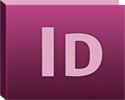
Business Card
Designing and printing your business card
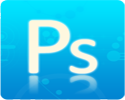
Website Structure
Designing the look and feel for your website

Website Content
Learning the HTML skills necessary to implement and update your content
Players and Plugs
Integrating javascript and players to add polish and functionality to your site

SEO
Learning the techniques to get great search results from search engines
Social Media
The art of connecting your website to a dynamic social media
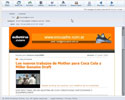
HTML E-mail
The ins and outs of designing an HTML e-mail to best show off your media
Advanced Pro Tools and Productions
Advanced Pro Tools (APT-201) takes the student's knowledge of Avid's (Digidesign's) Pro Tools to an expert level. Topics covered are elastic audio, film audio post production, and advanced stereo and surround mixing. All classroom discussions are reinforced with required lab work. Here is a breakdown of some of the lessons:
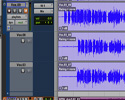
Using Playlist View
How to listen and comp tracks using playlist view
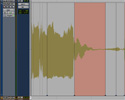
Elastic Audio
Understanding the many ways to use to manipulate time within an audio clip

Time Straightening
How to take a performance with bad timing and make it one perfect tempo

Advanced Melodyne
A deeper understanding of the process for tuning both monophonic and polyphonic instruments

Advanced Auto-Tune
All the ins and outs of Auto-Tune
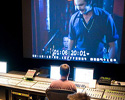
Film Audio Post Production
Understanding how to record and place dialogue and sound effects for film and video

Advance Mixing
A deeper understanding of stereo and surround mixing concepts

Advanced Mastering
A deeper understanding of stereo and surround mastering concepts
Advanced Beat Production and Music Composition
Advanced Beat Production and Music Composition is designed to teach the student how to service a client from a songwriting and arranging point of view using MIDI in Pro Tools and Reason. Here is a breakdown some of the lessons:

Midi Chart Writing
Creating written music for hired musicians whom you will be recording for your clients projects

Song Structure
Understanding how songs are traditionally put together and the energy flow from beginning to end

Harmonizing & Arranging
Putting chords to a client's melody and lyrics, and an introduction to the art of arranging and beat production

Synths, Samplers & Bass
Learning the basic tools for MIDI triggered sounds and the function of the Bass in an arrangement

Keys & Chord Choice
Adding harmonic layers to your compositions

Guitars & Effects
Understanding the roles guitars can play and how effects can add interesting dimensions to your production

Voice Leading & Strings
Adding drama with Strings and understanding how each instrument moves within a chord progression

Counterpoint & Winds
Learning brass and woodwinds, and how different melodic elements call-and-respond to each other within a piece

Vocals & Melody
How to bring out the best, most inspired vocal performances and how vocal layering can enhance your production

Final Project
Putting it all together with a potential client - creating an arrangement for a songwriter using MIDI in Pro Tools
Advanced Projects and Events
Advanced Projects (APE-201) is focused on the skill of developing client relationships. You will learn how to start your relationships with artists in a way as to set the foundation for a potential client. You will record, edit, mix and master as many as 10 single song projects, each with the intent of creating a client. Here is a breakdown some of the lessons:
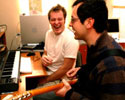
Artist Relationship
The freely booked studio time and instructor support to record as many as 10 projects
Project Tracking
The freely booked studio time and instructor support to record as many as 10 projects

Project Editing
The freely booked studio time and instructor support to edit all projects
Project Overdubbing
The freely booked studio time and instructor support to overdub tracks for all projects

Project Mixing
The freely booked studio time and instructor support to mix all projects
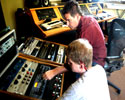
Project Mastering
The freely booked studio time and instructor support to master all projects
